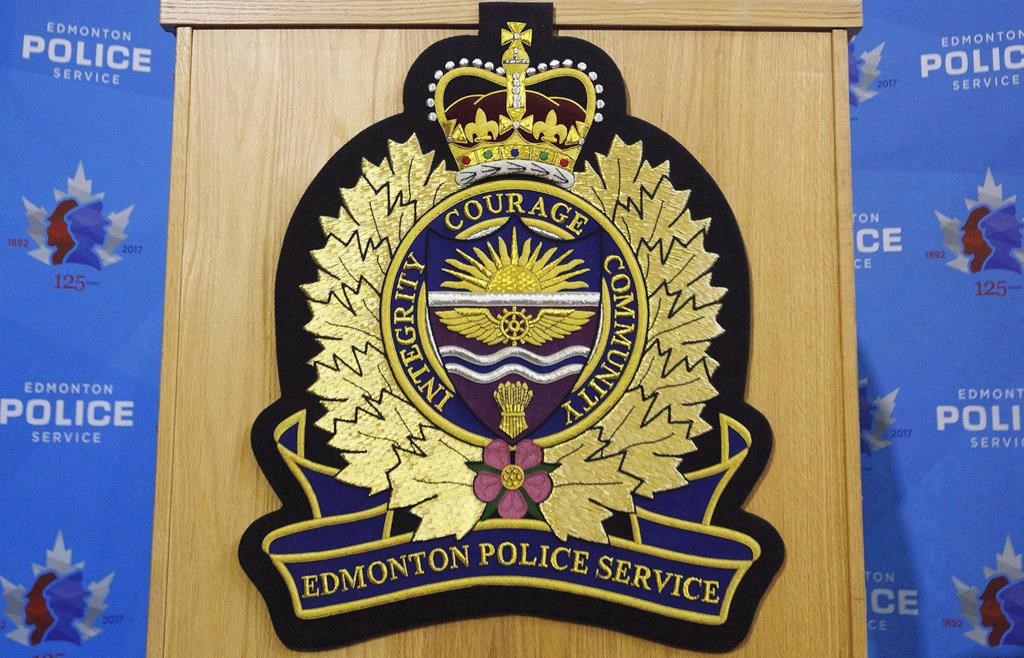The Alberta government has announced new details about funding that will allow more social workers and health-care workers to partner with Edmonton police in a move the province said will help with the “addiction crisis.”

“This funding brings together health professionals, community partners and police through partnerships that share a common goal: helping more people get well and pursue recovery while keeping our communities safe,” said Mike Ellis, minister of public safety and emergency services.
The funding had been previously announced as part of the 2023 budget.
As part of the funding, 12 new social navigator positions and two new team leads will be added to Edmonton police, which the province said will double the amount of Human-centred Engagement Liaison Partnership teams in the service.
HELP teams are made up of a constable and navigator who can connect vulnerable people with health care, social services, addiction counselling or mental health supports, according to EPS.
“HELP teams divert approximately one community member from the justice system every day, with 889 referrals in 2021, 2,641 in 2022, and 664 so far in 2023,” said EPS in a news release.
EPS said it will provide 12 constables and two sergeants to work with the navigators.
- ‘She gets to be 10’: Ontario child’s heart donated to girl the same age
- Bird flu risk to humans an ‘enormous concern,’ WHO says. Here’s what to know
- Buzz kill? Gen Z less interested in coffee than older Canadians, survey shows
- Canada updating sperm donor screening criteria for men who have sex with men
Funding to the tune of $2 million means eight new navigators will also be hired by EPS’ divergence and desistance branch, which identifies prolific and persistent offenders who are responsible for the most crime, according to police.
Eight mental health therapists will be hired to support 911 dispatchers and police.
“This will offer better support to people calling in with medical or mental health concerns while also freeing up other critical police resources so they can focus on other urgent 911 calls,” said Nicholas Milliken, minister of mental health and addiction.
More than $6 million will go toward hiring health-care workers at the downtown division branch’s new integrated care centre (ICC), where people detained on public intoxication charges will be offered options for addiction treatment, according to the province.
“Health services staff at the EPS Downtown Division will be able to assess and help up to 17 people at any given time,” said the province.
Two paramedics, two recovery coaches, two health-care practitioners and a dozen community safety officers will be hired at the ICC, according to the government.
EPS added the ICC will soon partner with a local agency that supports vulnerable people in downtown and Chinatown.
“Radius Community Health and Healing… will provide wrap-around services that assist individuals in forming care plans extending beyond release,” said EPS.
With part of the funding, eight mental health therapists will be hired to support 911 dispatchers and police.
“This will offer better support to people calling in with medical or mental health concerns while also freeing up other critical police resources so they can focus on other urgent 911 calls,” said Nicholas Milliken, minister of mental health and addiction.
Police said 30 people have gone through the ICC since it opened on March 29.
However, the leader of a group that advocates for ending stigma around substance use said she had concerns about the ICC.
“People should not be in custody for intoxication,” said Petra Schulz, co-founder of Moms Stop the Harm.
“Locking people up for what is essentially a health condition is never the answer. If you arrest people under the guise of helping them, then we are really taking the wrong approach.”
Schulz said many people who use drugs are less likely to seek help and trust authority because they’ve had negative experiences in the health-care and justice systems.
More supports for people leaving addiction treatment need to be available, Schulz said, adding if people don’t have housing once they are done with treatment, they’re more likely to start using again.
“We have people whose children die right out of treatment… that is not a recovery-oriented system.”

–With files from The Canadian Press




Comments